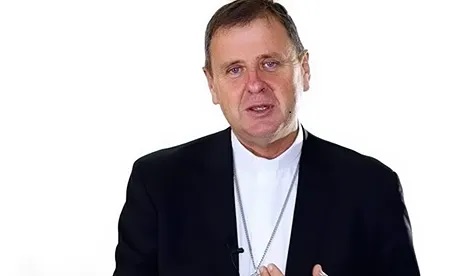An independent assessment of Catholic safeguarding protocols and procedures in New Zealand has identified significant progress in many areas.
The New Zealand Bishops Conference, in a report issued by Te Rōpū Tautoko, says it also highlights areas where more work is needed.
Te Rōpū Tautoko coordinated the Church’s engagement with the Royal Commission of Inquiry into Abuse in Care.
Te Rōpū Tautoko says UK-based GCPS Consulting’s assessment examined the implementation and suitability of safeguarding culture standards across the Catholic Church in New Zealand.
Unsafe institutions
The assessment revealed that up to 42 percent of those in faith-based care run by all denominations were abused from 1950 to 1999 – the period the Royal Commission focused on.
“The assumed moral authority and trustworthiness of clergy and religious leaders allowed abusers in faith-based institutions to perpetrate abuse and neglect with impunity” says Royal Commission advisor Arrun Soma.
“Religious beliefs were often used to justify the abuse and neglect and to silence survivors.
“Hierarchical and opaque decision-making processes impeded scrutiny and making complaints”, he told the New Zealand Parliament in July this year.
A 2020 briefing from the Catholic Church previously noted abuse accusations against 14 percent of its New Zealand clergy during those decades.
Better safeguarding planned
The President of the New Zealand Catholic Bishops’ Conference, Bishop Steve Lowe, is encouraged by the range of approaches that are working well and acknowledges the areas that need further strengthening.
Critical recommendations for Catholic safeguarding in New Zealand include:
- Increased dialogue with survivors and their representatives
- Regular public reporting on the number of cases reported to Church authorities
- Ensuring documents are more accessible for people from a range of backgrounds
- Seeking to undertake investigations in a more timely manner
- Assessing the Church’s allocation of resources on prevention and responding to complaints and concerns
- Ensuring safeguarding is embedded in all roles for those working in the Church
“We are grateful for the dedicated and knowledgeable people we have guiding our safeguarding initiatives, but it is important that we provide them with the appropriate support and promote collaboration and ongoing development for them” Lowe says.
Father Thomas Rouse, President of the Congregational Leaders Conference, stresses the need for increased dialogue with survivors and their representatives.
“The road towards a sense of truth, of justice, of healing is one we must walk with those who have been abused in our settings” he says.
Rouse and Lowe want their organisations to develop an official plan to respond to the Royal Commission’s findings.
Source
- Crux Now
- Catholic News Agency
- Errors made in an earlier version of this article have been rectified.
News category: New Zealand.




